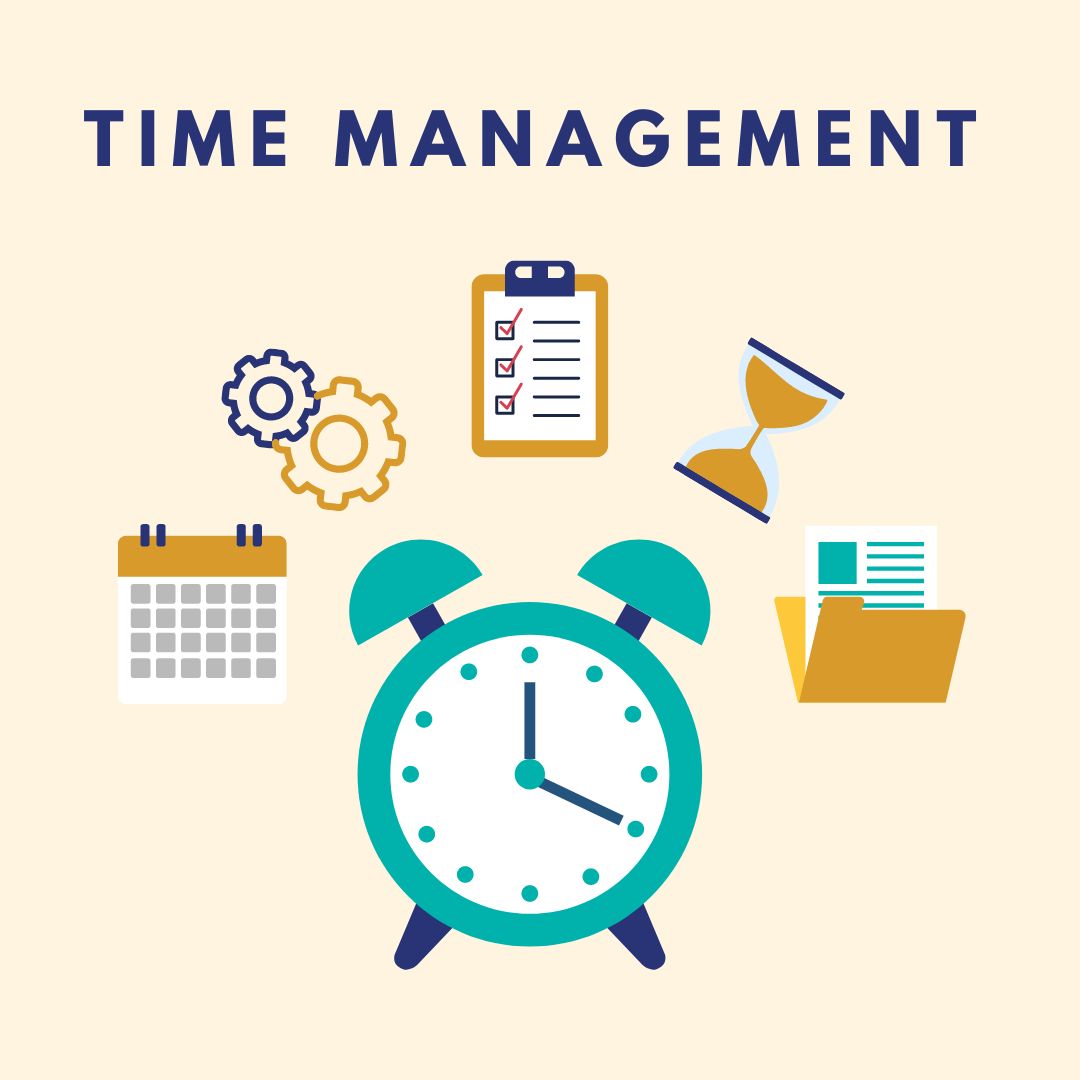9 Time Management Tips to Prevent Burnout
April 24, 2023

Time management is one of the best tools to prevent and avoid burnout, according to the Healthcare Information and Management Systems Society (HIMSS). Maintaining a healthy work-life balance in today’s work environment is essential. Here are nine tips to improve your time management and avoid burnout:
- Use that calendar. A paper or virtual calendar is essential to keeping track of your schedule. Make sure you write all your classes, meetings, appointments, work commitments, etc., on your calendar, and refer to it anytime you need to schedule something.
- Write it down. Get in the habit of writing down everything you must do in one place. If you notice some things never get crossed off your “to-do list,” ask yourself if the task is essential. If not, get rid of it. If so, take it off your to-do list and put it on your calendar.
- Plan ahead. Whether you plan your day in detailed minute-by-minute increments or broad chunks of time, make sure you put deadlines and due dates on your calendar, then work backward so you have a handle on what needs to be accomplished and when.
- Allow for flexibility. Things don’t always go according to plan. So, leave yourself a little wiggle room to adjust when something unexpected comes up.
- Prioritize and re-prioritize your tasks. Prioritizing tasks ensures that you are spending your time and energy on the things that are most important to you. Look at your “to-do” list and decide what needs attention now and what can wait. If unexpected things happen, as they tend to do, you may need to shift your schedule and re-prioritize.
- Avoid over-commitment: learn to say no. Overcommitting can lead to excessive stress, which means you’ll get less out of each activity. Saying yes to one thing can mean neglecting another. If it’s tough to say no, practice saying, “Let me think about it,” or “Can I get back to you later?” to give yourself time to weigh the pros and cons.
- Ask for help, clarity, or for more time. This can mean asking your supervisor, manager, colleague, or peers.
- Get started. Starting a project is often the most challenging part. If you’re avoiding an unpleasant task, scheduling 10-15 minutes daily to work on it can be helpful. Make sure to reward yourself when you achieve goals!
- Self-care. Sleep, rest, and breaks can improve focus and concentration, enabling you to complete your work more efficiently. In addition, eating well and exercising can give you the boost you need to get through your task (Amherst College, 2023).
Click here to read more about preventing burnout from the HIMSS.
Quick tip from the American Medical Association (AMA):
“Practical activities like self-reflection, mindfulness, and documenting patient victories can cultivate a happier and healthier mindset. Additionally, take advantage of any counseling and stress management coaching offered by your practice or organization to develop a formalized self-care plan.”